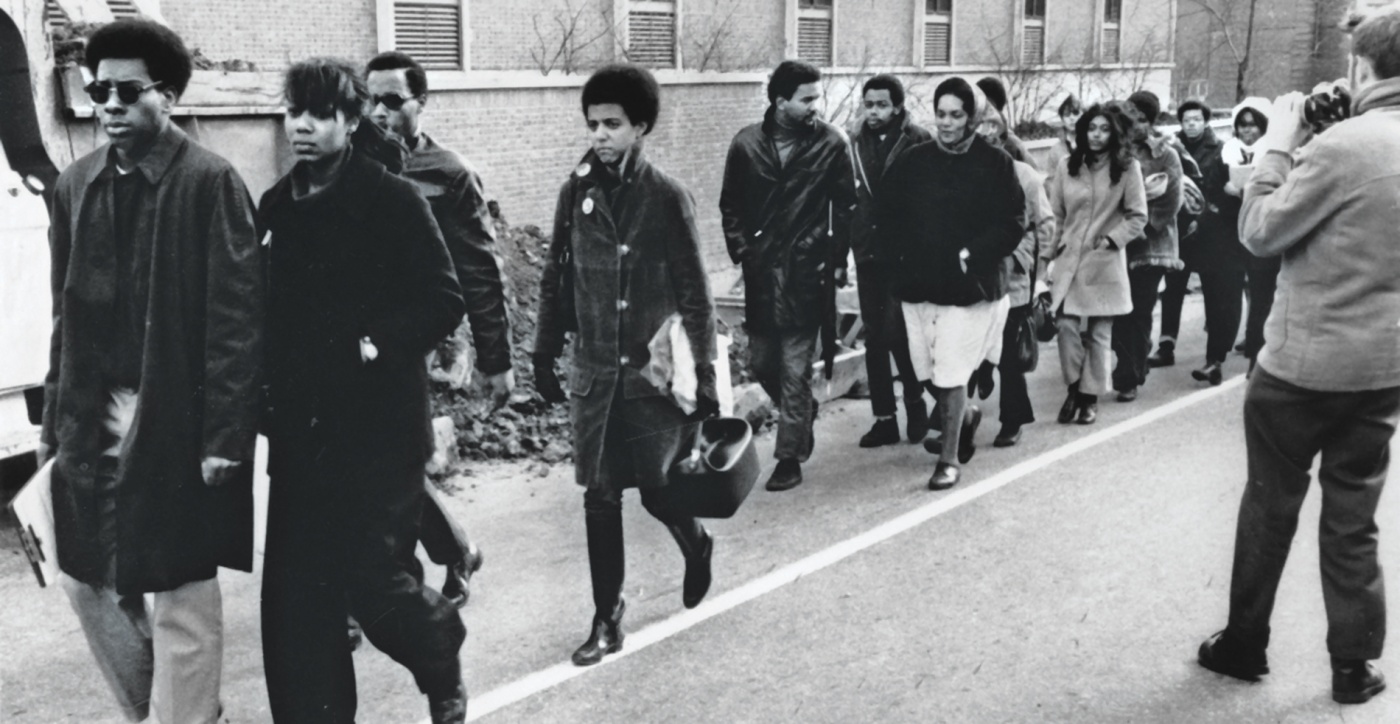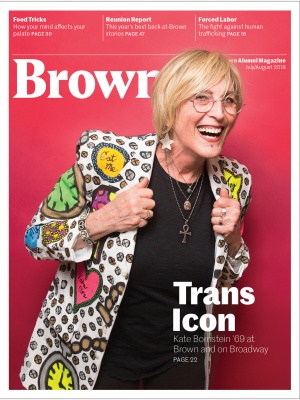When Inman Page took the Manning Hall podium in 1877 to deliver the Class Oration, he broke ground on diversity and inclusion. Born into slavery, what was within reach for him in life was limited. The odds were against a Brown University education.
Yet there he was, one of Brown’s first African American students, empowered and respected in the moment. Crediting America’s longstanding ideal of “liberty” and its ability to unleash minds, Page cited education’s role in shaping the innate “genius” in all people. And with sublime self-awareness from the “high vantage ground” where he stood, he challenged his classmates to offer sympathy and aid “to all who are laboring, silently perhaps, but earnestly to extend the boundaries of knowledge.”
More ground was broken in 1968. In December of that year, 65 of the 85 African Americans enrolled at Brown marched down the hill to Congdon Street Baptist Church where they camped for three days, pressing the University to significantly increase the number of black students in each entering class.
This September, black and Latinx alumni are invited back to campus to reflect on the 50th anniversary of the Black Student Walkout of 1968 and to be part of an important dialogue on the progress made on diversity and inclusion at Brown.
At this milestone Black Alumni Reunion, workshops and panels will examine how the events of 1968 catalyzed a wider reckoning of race at Brown and deepened the University’s commitment to combating racism with knowledge, understanding, and opportunity.
For some, the reunion will honor the faith in learning demonstrated by early African American students at Brown—those like Inman Page, Ethel Robinson, John Hope, and others who went on to teach, mentor, lead, and break down barriers in higher education. For others, the reunion will revisit 1968-era stories of black alumni who were on the front lines doing the hard work of social change, brokering debates, organizing, and protesting. Gratitude for the risks they took and the sacrifices they made will be evident.
The reunion will amplify Brown’s mission of preparing students for lives of leadership by celebrating the extraordinary accomplishments of our black alumni. These alumni have formed social change organizations, like Brotherhood/Sister Sol in Harlem, founded by Jason Warwin ’95 and Khary Lazarre-White ’95 around a youth development concept they worked on while at Brown at the John Hope Community Center in South Providence.
These alumni have initiated innovative ways of paying it forward, like the Investment in Diversity Fund, the first University-wide fund dedicated to financial aid for minority students, launched by Augustus “Gus” White III ’57, together with Harold Bailey ’70 and Bernicestine McLeod Bailey ’68. Today, the fund continues to provide scholarships to African American students.
And these alumni have emboldened the voices of the unheard, created opportunities for the underserved, and pioneered technological breakthroughs for the unconnected.
But what may make this latest Black Alumni Reunion especially inspiring is the promise of intergenerational connection, particularly at this contentious, polarizing time for our country. When Brunonians who pried open doors in the 1960s break bread with Brunonians who are opening new doors today, only good things can follow.
On the strength of the Pathways to Diversity and Inclusion action plan—crafted partly from the wisdom we have drawn from the arc of Brown’s history on race—we move forward seeing diversity as a cornerstone for advancing knowledge, discovery, and the public good.
And so this special Black Alumni Reunion is not only a time to honor defining moments in Brown’s history; it is also a time to look ahead at how all of us in the Brown family can continue breaking ground on the unfinished business of securing racial equality and social justice—in our communities, nations, and the world.






